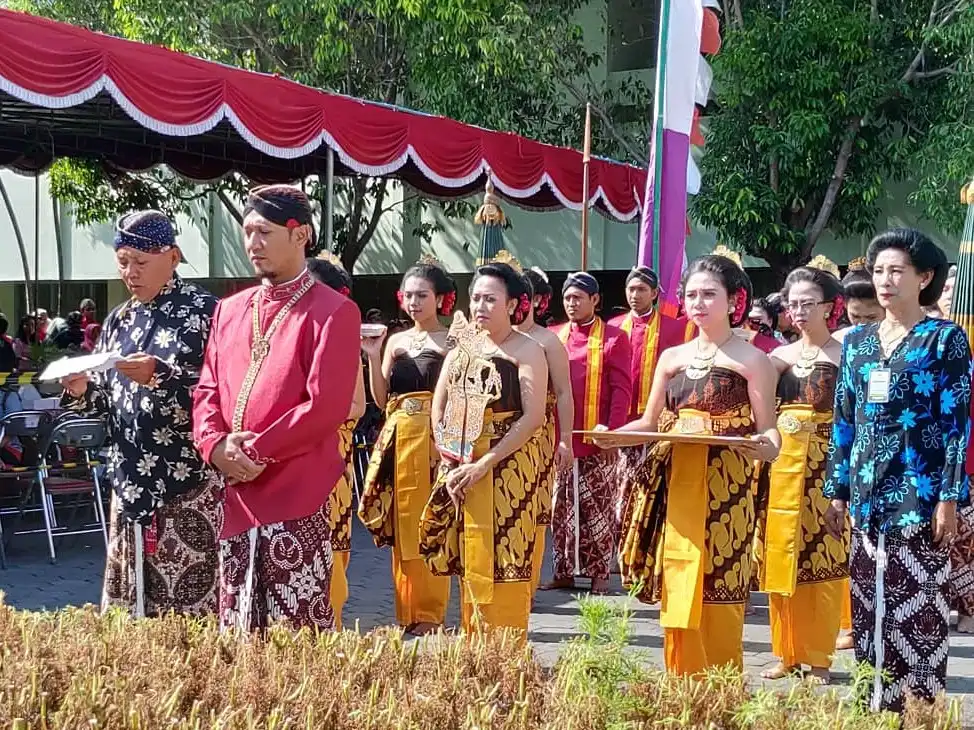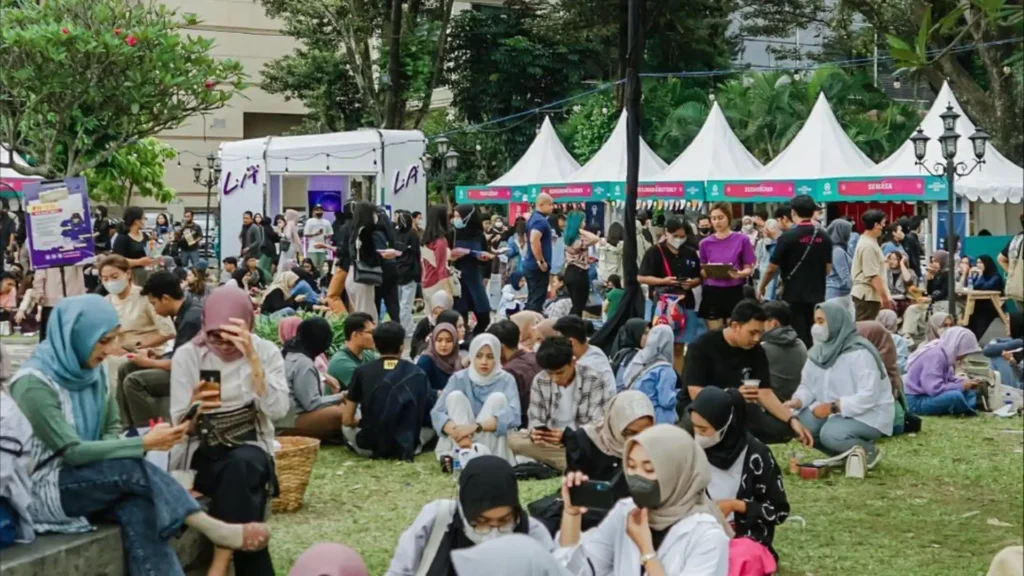Yogyakarta is a city where traditions breathe through every alley, and the sound of the gamelan feels like a warm, welcoming melody. Among its many cultural treasures lies ruwatan, a sacred ritual rooted deeply in the spiritual fabric of Javanese society.
Practiced to cleanse individuals from misfortune and dark energies, Ruwatan is not just a ceremony, it’s a symbolic rebirth. As Yogyakarta becomes a growing cultural destination, more people are drawn to witness or even take part in this rare and meaningful tradition.
Table of Contents
What’s Ruwatan?
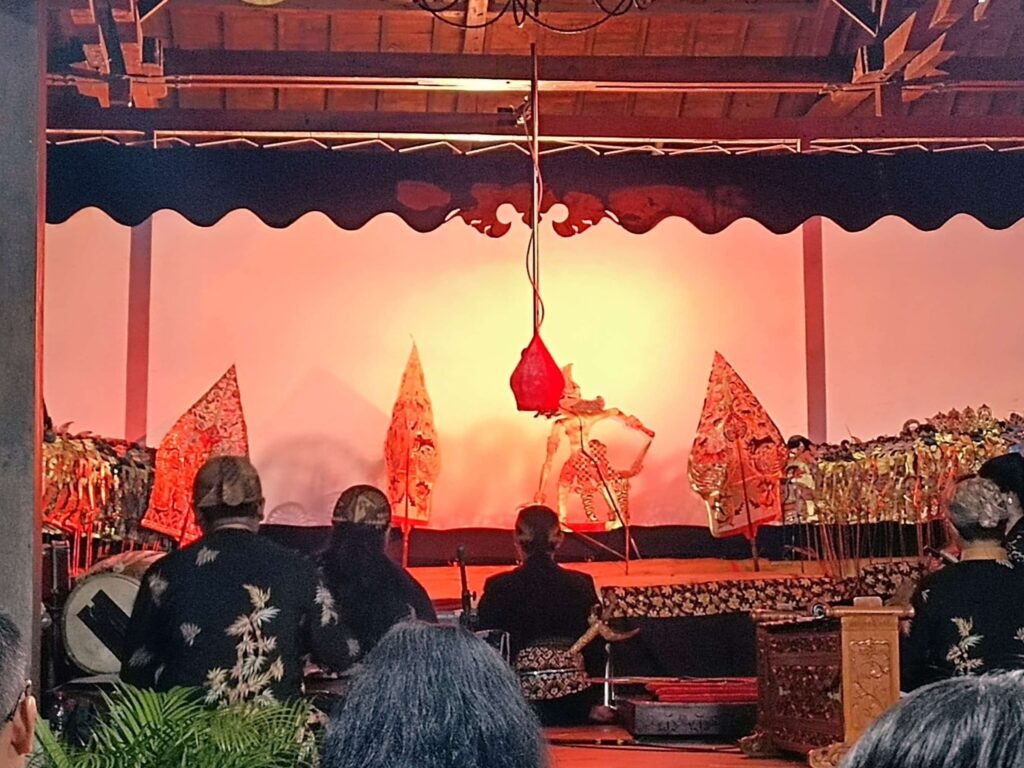
At its core, Ruwatan is a soul-cleansing ceremony performed to release someone from spiritual dangers or bad luck, often called Sengkala. These risks can be believed to follow people born into certain “unlucky” categories, such as Anak Tunggal (only child), anak ontang-anting (one girl among boys or vice versa), or those born during certain rare events.
This tradition helps cleanse these “impurities” through a sequence of prayers, performances, and symbolic rituals, all grounded in Javanese belief systems. The ritual is carried out with serious spiritual preparation.
Ruwatan often includes a Wayang Kulit (shadow puppet) performance led by a dalang or puppet master, whose stories serve not only as entertainment but also as spiritual tools to break the chain of misfortune. In some versions of Ruwatan, cutting the participant’s hair symbolizes cutting away bad fate, letting them start anew with purified energy.
History of Ruwatan
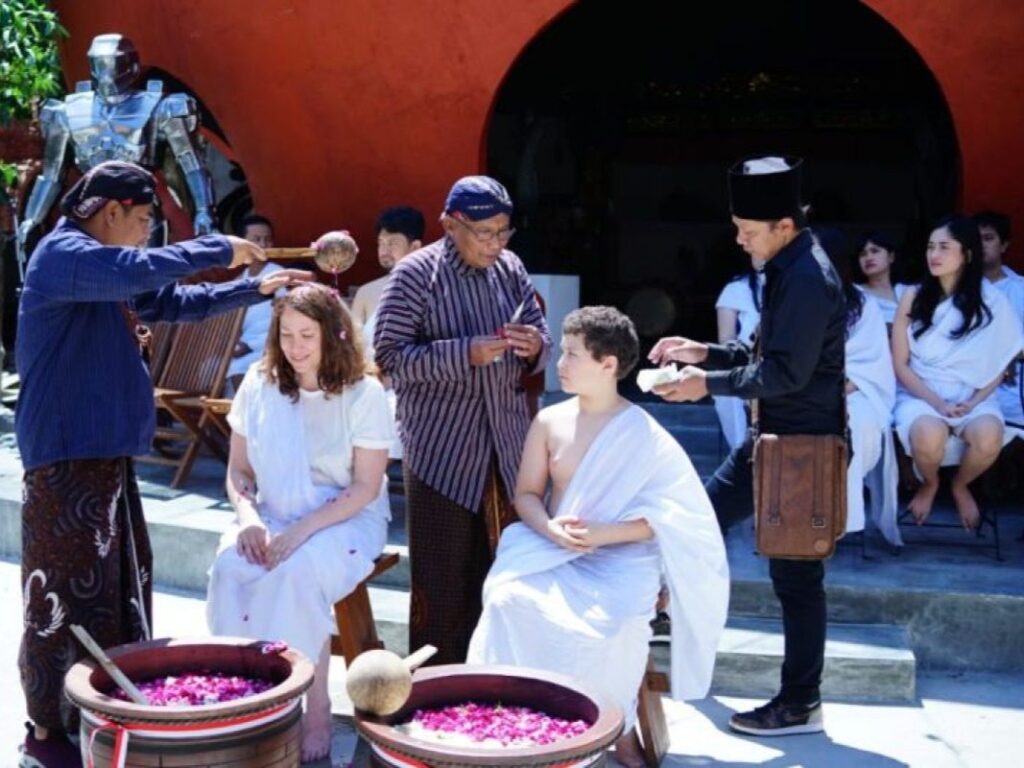
The history of Ruwatan stretches back to ancient Java, where kingdoms like Mataram practiced it to protect royal heirs and the community. It was not merely a personal ritual but also a cosmic balancing act, believed to prevent chaos in the universe. The tradition is strongly influenced by Hindu-Buddhist cosmology, where the soul must be in harmony with nature and the gods.
In the royal court of Yogyakarta, the Abdi Dalem (royal servants) often took part in organizing the ritual. Sometimes, the Sultan himself gave permission or spiritual blessings for ruwatan ceremonies, especially when held in public spaces like the Keraton (Sultanate Palace).
The philosophy behind Ruwatan teaches that life is not just physical, there is an invisible world that affects our fate. Through symbolic gestures, sacred words, and community involvement, people seek to mend the spiritual imbalance that might be causing misfortune.
Over time, the frequency of Ruwatan has changed. It was once a common practice in many Javanese households, but today it is more often performed during special occasions or as part of larger cultural events. However, the essence of ruwatan remains: to purify the soul and realign oneself with the universe.
The Procession: Where and How to Experience Ruwatan Today
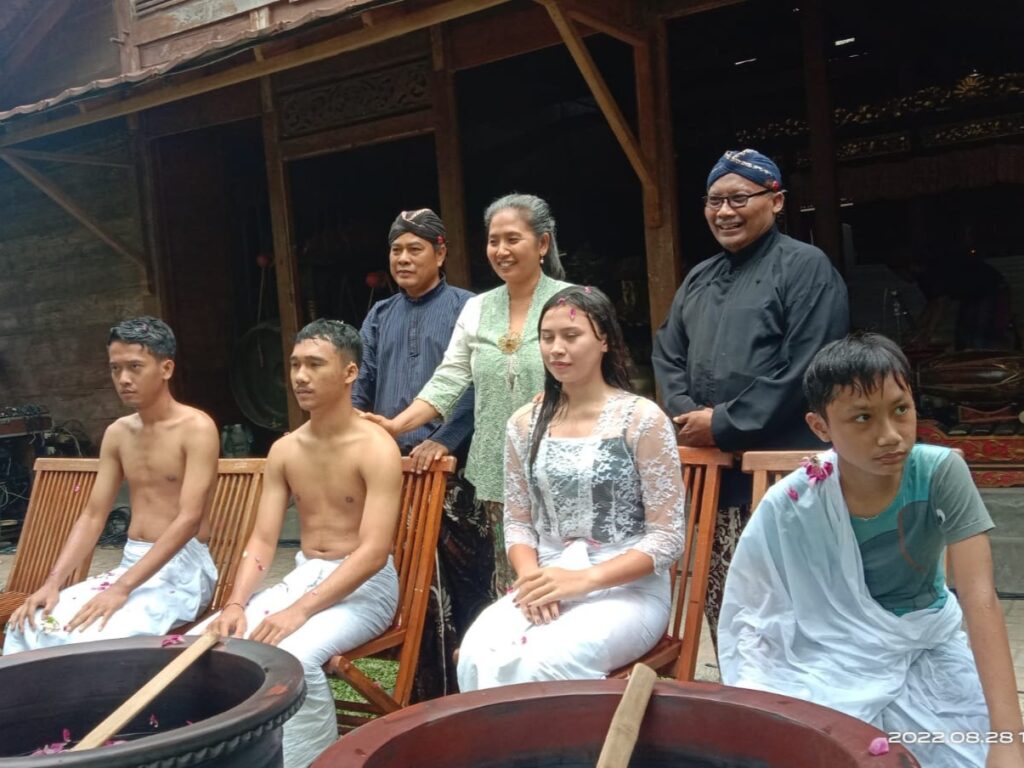
A meaningful example of a traditional ruwatan ceremony was held at Pasar Kumandhang in Sleman on February 9, 2025, as part of the Ruwatan di Kaki Merapi. Led by Dalang Ki Suwanda, the event included a cleansing procession, tree planting, and cultural performances like Gejog Lesung.
Though this ceremony has passed, Pasar Kumandhang often hosts community-based cultural events throughout the year. Travelers interested in experiencing future ruwatan rituals in a more open and interactive setting can follow local cultural communities or check announcements from Pasar Kumandhang.
There’s also Ruwatan Suro Agung 2025 at one of the beaches in Yogyakarta, held by Lightworker Nusantara. Activities include meditation, grounding, bonfire gathering, the main ruwatan ceremony, and private consultation sessions with experienced practitioners. Follow @lightworkernusantara for more upcoming events. Whether you come as an observer or take part in the cleansing ceremony yourself, Ruwatan has the power to shift your perspective and bring inner clarity.

